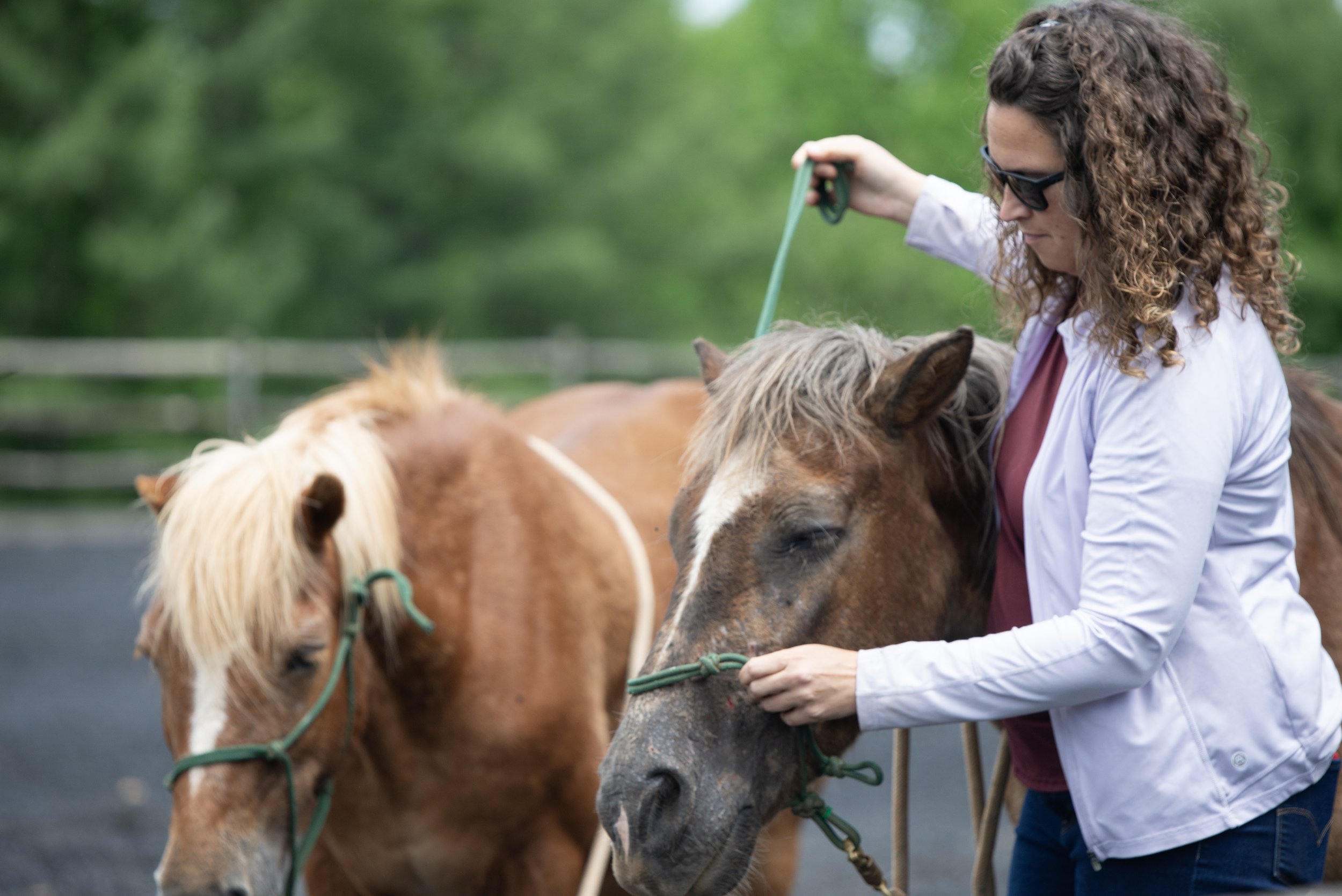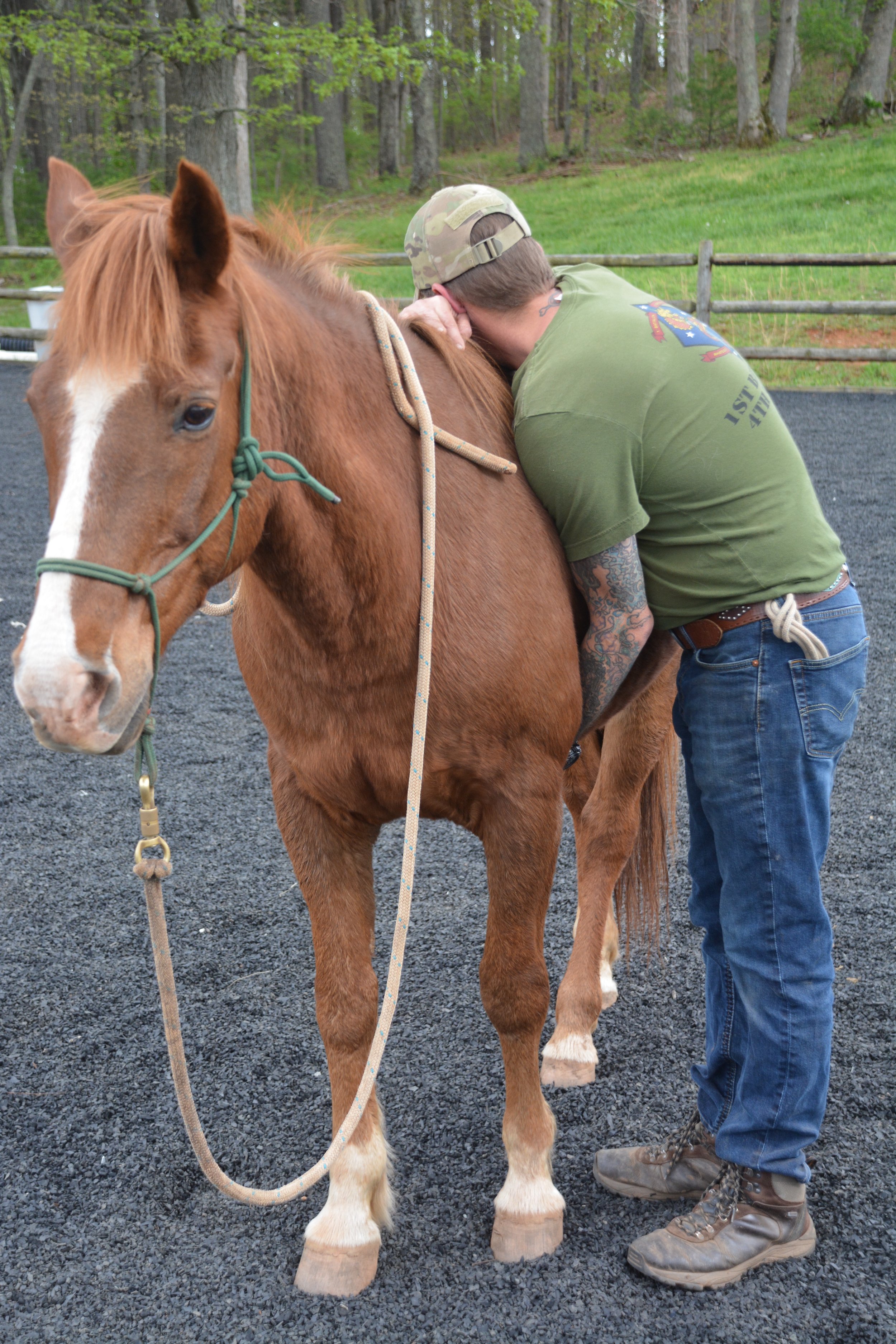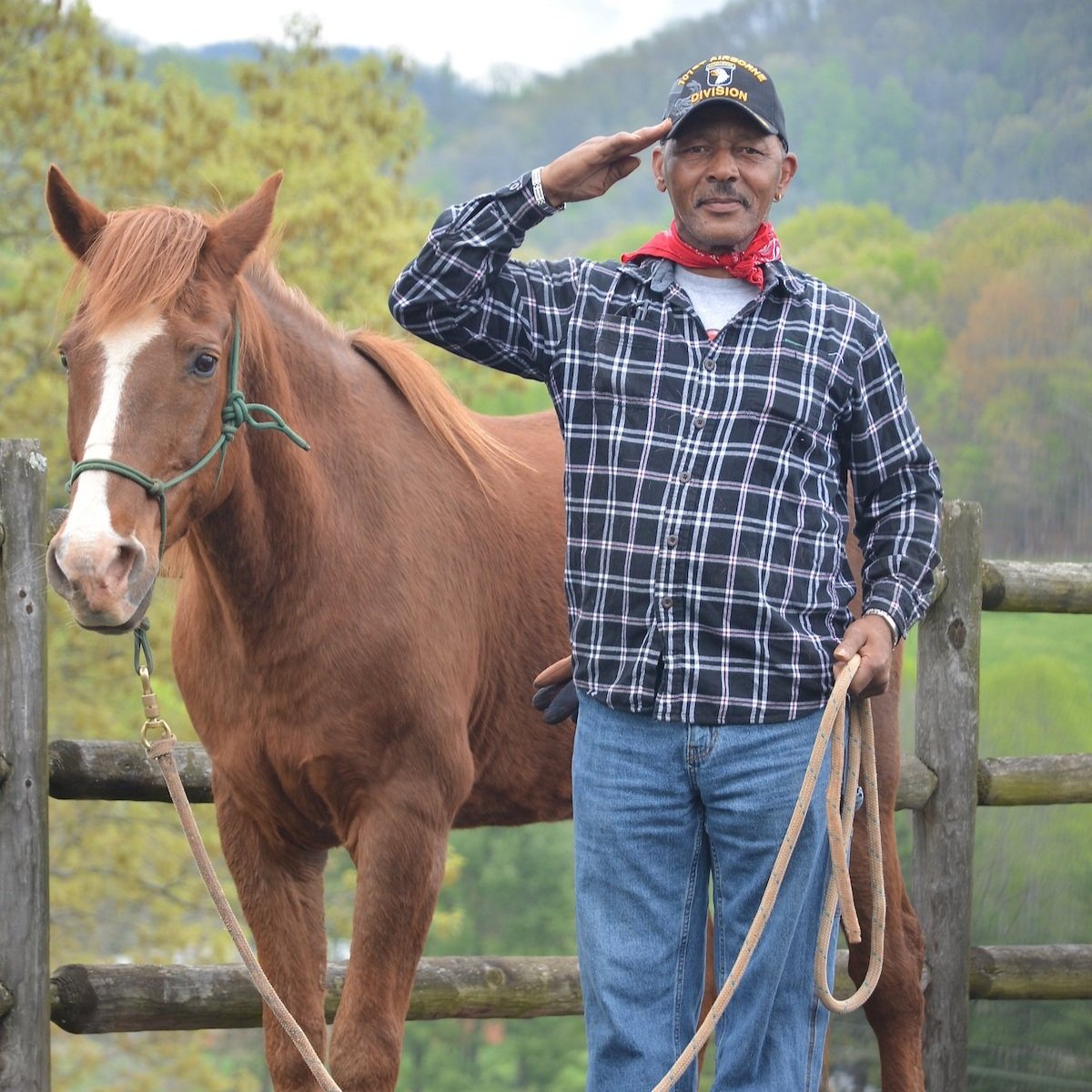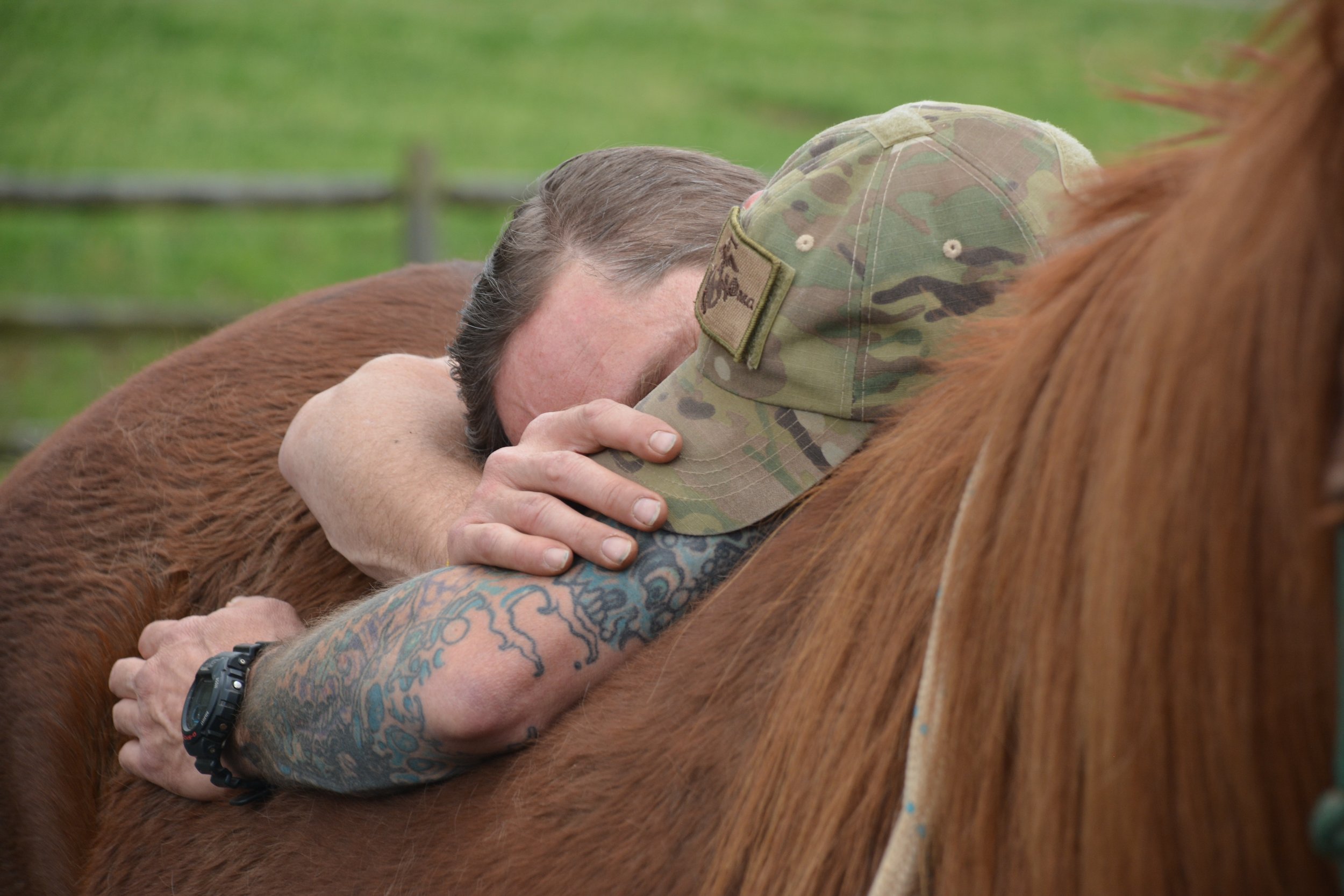Equine Services For Veterans & Their Families
Horses Know Trauma.
Here’s how they help humans:
Until recently, addressing the mental health of soldiers and first responders has not been a priority for our country. And yet,
1 in 5 veterans suffer from PTSD and/or depression
Roughly 70% of homeless veterans suffer from a substance use disorder.
National data indicate that about 1 in 4 women and 1 in 100 men responded “yes” that they experienced MST, when screened by their VA provider.
And even more recently, we are beginning to recognize the mental health needs of our first responders:
80 percent of firefighters report being exposed to a traumatic event.
90 percent of police and EMTs report exposure to trauma.
49 percent of first responders were offered “Psychological First Aid” after traumatic events.
85 percent of first responders experienced symptoms related to mental health issues.
According to a 2011 Straits-Troster study, almost 40% of our returning troops suffer from depression, anxiety and PTSD. Not only do these poor mental health conditions negatively impact the lives of the veterans and their families, they can also increase the likelihood of unemployment, poverty, domestic violence, homelessness, and suicide.
In evaluating the need and benefits of Equine Therapy and Learning for these groups, Founder and Executive Director Shannon Knapp points to a pilot study at Fort Carson, CO. The study showed that equine therapy and learning reduced the risk of violence by veterans by 24%. Even more remarkable, the rate of suicide was reduced by 62%. Through the work of Heart of Horse Sense, Knapp is seeking the same level of dramatic results as the Fort Carson Pilot Study.
“Our goal is to Ensure Equine Therapy is available throughout Western north Carolina to any veteran or first responder who has made the step to ask for help.”
—Shannon Knapp, Executive Director of Heart of Horse Sense







Facts
About 300,000 Iraq and Afghanistan war veterans suffer from PTSD or major depression, and about 320,000 may have experienced at least a mild concussion or TBI in combat. - RAND Corp. study released in 2008.
In 2008, one in four veterans were diagnosed with PTSD, and some experts believe this could increase to one in two by 2011 years end. - PTSD Foundation of America
11-20% of Veterans of the Iraq and Afghanistan wars; as many as 10% of Gulf War; and about 30% of Vietnam Veterans have PTSD. - Dept of Veterans Affairs
Untreated mental health problems among returning troops will cost the nation up to $6.2 billion over two years in medical costs, lost productivity, and lives lost to suicide. - A RAND Corporation survey, Invisible Wounds of War: Psychological and Cognitive Injuries, Their Consequences, and Services to Assist Recovery
While there is no cure for PTSD, early identification and treatment of PTSD symptoms may lessen the severity of the condition and improve the overall quality of life for veterans suffering from this condition. - Veteran’s Newsroom Statistics
Working with Horses Works
WNC Funded Programs
Heart of Horse Sense:
Individual therapy, group learning
Marshall, NC (Near Asheville)
Email programs@heartofhorsesense.org
Soul to Soul Connection
Individual & Group Therapy
Moorseville, NC (Near Charlotte)
Email info@s2sconnection.org
Groups and Retreats specializing in military families
Franklin, NC







